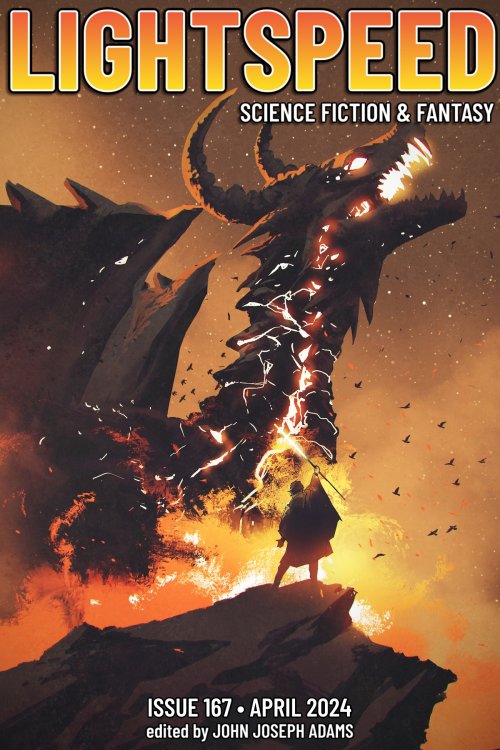When the giants came through the valley, they made footprints as long as the Santa Monica Promenade, as wide as Dodgers’ Stadium. They crushed dance studios, keto cafes, a waterpark. They left trails of steep-sided ravines with walls of stratified clay and crumbling asphalt, and this is where we now live. Sunset comes earlier down here, but it could be worse.
Our footprint is deep and arid and full of retooled strip malls. We dwell in the remains of Foot Lockers and tiki bars, tag our names out front in bold blue letters. Lazy Stan, Carmencita, Hot Hot Henri. We didn’t all live here, before the giants came through. We’re a product of collective chance. Grinding out another two-hour commute, heading for happy hour at The Village after working another double, the third this week. Some of us still have homes topside, in buildings the giants happened to miss. But that’s neither here nor there. The footprint is our home, now.
No two footprints are the same. Ours doesn’t have much going for it, aside from a surprisingly fertile heel wall. Good for growing grapes, which has come in handy considering how the airdrops never include any wine. A few footprints down, they struck oil. Bleeding through the cracks in that old giant’s sole stamp. Most people topside say the footprints are a blemish, an embarrassment. Not that one. Excavators moved in overnight, kicked everyone out.
The grapes are our little secret.
• • • •
When the giants came through the valley, they shed all manner of alien creatures. Land-crawling octopuses shaken from the hairs of their feet, huge spiders jettisoned from their vast dreadlocks. Razor-toothed frogs that are ninety-percent mouth.
They scuttled about in a daze, like us, before aggressively laying claim to whatever residence they could find. The dusty asphalt crags of a basketball court, the ethernet-cable jungle of a ruined server farm. Most of them are herbivores, lucky us. Tomas took it upon himself to sort out which ones weren’t. He had a good run; we’re thankful for his contributions.
Topsiders have a rule. Anything that breaches the surface that isn’t human, kill it. Down here, though, it’s live and let live. Sure, the critters aren’t always pleasant, but who can blame them? They’re just like us, clinging to some dispassionate monolith our whole lives because we’re all too scared to let go, even as it stomps and stomps and stomps on everything we’ve ever known. Until finally, through exhaustion or the sheer loss of will, we just can’t hold on anymore.
So we let go.
• • • •
When the giants came through the valley, they caught everyone unaware. Where did they come from? The Moon? Mars? Bakersfield? Did they rise from an age-old slumber deep within the crust of the earth?
Perhaps we’ll never know.
The governor deployed the national guard, but it was too little, too late. By the time the Harriers howled in with their little-man braggadocio, the giants were gone. They marched straight into the Pacific Ocean without ever looking back, until all we could see—those of us with any view at all—were the forested tops of their heads. Then a ripple of sea foam.
And then nothing.
• • • •
When the giants came through the valley, they left pieces of us behind.
Benny was a customer service associate at a telecom company, where he’d worked for twelve years and had been passed up for promotion twelve times. He didn’t have that spark, they explained to him. He made two dollars above minimum wage, lived in a loft by the docks where he kept old takeout containers on hand to catch the drips from the ceiling when it rained, which was never frequent enough to warrant the landlord’s attention. He’d never been late for a shift and had never taken a vacation. On his last day of work, the day the giants came through, he’d been called a money-grubbing cockswallow, a capitalist goon, and a script-reading dickwreath. On none of these occasions had he deviated from his list of approved responses. When he looked at himself in the mirror that morning, he still couldn’t find that spark.
• • • •
When the giants came through the valley, they left two kinds of survivors. Evacuees, and everyone else. They airlifted the first lot within the week. The rest of us, well.
News crews periodically buzz down in their helicopters. They think this thing we’re doing is a movement. Living low, they call it. And us, lowlifes. They seem desperate for us to buy into the notion, to justify what would otherwise be madness.
They always ask the same questions.
“Why are you still down here?”
“You know you don’t have to stay, right?”
We offer assorted reasons. Lower rent, fewer sunburns, no parking tickets. But it’s all bullshit, and the reporters leave wearing the grimaces of beleaguered parents.
So why are we still down here?
Politicians watch the news with an ear for worst-case scenarios; pretty soon movement starts to sound an awful lot like protest. They talk a lot about waiting us out and breaking us up. But what is it they think we’re protesting? And how could this possibly help?
Some developers put together a plan to fill in the footprints with sand from Palmdale, cover them in glass domes, turn them into high-end novelty spas. Maybe someday they’ll have their way. Until then, we accept our monthly airdrop of rations graciously, though we don’t really need it. Shayna’s garden is a thing of wonder, and it turns out the eggs from those razor-toothed frogs are pretty tasty with a little salt.
What we’re doing, I suppose, is living. Just a little farther down.
• • • •
Jaime was a middle manager at an insurance company where he averaged sixty-hour weeks. His job was to deny claims; a single approved claim would cost him his entire monthly bonus. His boss punched down, so Jaime did the same, because that’s how you get ahead, and getting ahead is the dream. Besides, he was doing his team a solid—keeping them productive, keeping them employed. With the right amount of pressure, Trish might get that raise. Rama might finally make assistant manager. And boy, would they ever thank Jaime when they did.
Jaime had been smoking more every day. It was an expensive habit, sure, but it helped with the stress, and he earned a bonus after all. By the time the giants came through, he was up to three packs a day. He took his smoke breaks in the back alley, where they tossed the shredded remains of incriminating paper trails into big green dumpsters. Until, on that particular morning a few hours before the giants came through, when he stepped outside and promptly tripped over Rama, who happened to be lying facedown in a sticky morass of his own blood. The body looked deflated from the ten-story jump that had pulped his bones.
• • • •
When the giants came through the valley, they never once looked down. Did they even know we were here? Did they care? Were we that inevitable trail of ants, trampled on the way to the beach? Or was this a deliberate act?
Some survivors prayed it was malicious. Better to be spurned than ignored. Those were the survivors who left.
The ones who stayed, we know better. Giants rarely spare a thought for what’s underfoot.
• • • •
Anna cobbled shifts at three dishwashing gigs to make rent, kept her garnished tips in a coffee tin under her bed because she couldn’t get a bank account ever since her ex-husband wrote those bad checks to pay off his gambling debts. Three years later, she’d saved enough for a flight to Guatemala to visit her mother in hospice. On her way to the bank for a money order, the day before the giants came through, LAPD pulled her over. When she handed the officer her documents, his cold blue eyes lingered on the cash that plumped her wallet. He noticed a discrepancy with her immigration papers, brought her to precinct. Eight hours later, he let her go. The money in her wallet was gone. Her mother passed the next morning.
The night after the giants came through, we huddled around a barrel fire outside the pitted remains of a once-hip boba cafe, a host of alien creatures scuttling madly beyond the shadows. Tiny flames pitted Anna’s brooding eyes.
She folded her hands neatly in her lap, and said, “I’m done.”
There were nods all around.
• • • •
When the giants came through the valley, they left us all behind. What a cruel trick. None of us thought to grab hold and hang on. Where would we have ended up, if we had? Surely someplace better, we thought at the time.
Now, months later, as we sit around the barrel fire that has become our town hall, we harbor no such thoughts. We’re not interested in the worlds of giants. We’re lowlifes, and we always keep an eye on where we step.
Share
Spread the word!








